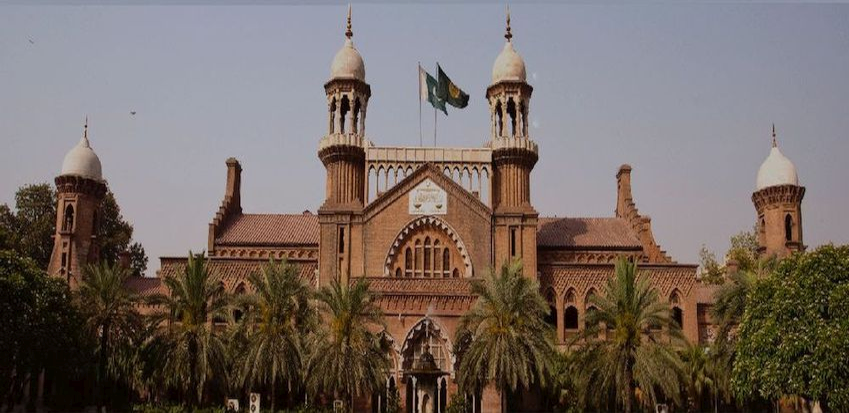Lahore High Court Sets Aside Pre-emption Suit Due to Procedural Lapses and Incomplete Evidence
Islamabad 20-09-2024: In a significant ruling, the Lahore High Court has set aside an appellate Court’s decision in the case of Ahmed Yar & Others Vs. Chan Pir Shah & Others [Civil Revision No. 1415 of 2011], dismissing a pre-emption suit filed by the respondents. The Court found procedural irregularities, failure to fulfill statutory requirements under the Punjab Pre-emption Act, 1991, and incomplete evidence as key reasons for overturning the previous decision.
The respondents, Chan Pir Shah and others, had initially filed a suit for possession through pre-emption, claiming superior rights over a 21-Kanal and 05-Marla land that was sold by Muhammad Ashraf to the petitioners, Ahmed Yar and others, through an oral sale on 08.08.2005. The respondents asserted their right of pre-emption as Shafi Sharik, Shafi Khalit, and Shafi Jaar and claimed that the sale was done secretly without providing proper notice under Section 31 of the Punjab Pre-emption Act, 1991.
While the trial Court dismissed the respondents’ suit in 2010, the appellate Court reversed the decision in 2011, decreeing the suit in favor of the respondents. The petitioners then approached the Lahore High Court in a civil revision, challenging the appellate Court’s decision.
The Lahore High Court, in its detailed judgment, found that the respondents had failed to properly perform the mandatory requirements of Talb-i-Muwathibat (the immediate declaration of the intention to pre-empt) and Talb-i-Ishhad (formal notice to the seller). The Court noted inconsistencies in the witnesses’ testimonies and highlighted the absence of the star witness, Mulazim Hussain, who had allegedly informed the respondents of the sale.
The Court emphasized the necessity of producing such witnesses in pre-emption cases, citing previous rulings from the Supreme Court of Pakistan. The absence of the informer led the Court to infer that the evidence would have been unfavorable to the respondents.
Another key issue in the case was the involvement of a minor pre-emptor, Wasif, one of the plaintiffs. The Court ruled that demands on behalf of minors must be made by a legally appointed guardian under Section 14 of the Punjab Pre-emption Act, 1991. The respondents failed to provide evidence that Wasif’s brother, Peer Ishfaq, was legally authorized to act as his guardian in this matter. The Court held that this procedural lapse rendered the Talb made on behalf of the minor invalid.
The respondents also claimed that the actual sale price was falsely escalated by the petitioners to avoid pre-emption, stating that the sale was for Rs.110,000 but was recorded as Rs.350,000. The Court found that the respondents had provided no substantial evidence to support this claim. In light of precedents like Subhanuddin Vs. Pir Ghulam (PLD 2015 Supreme Court 69), the Court reiterated that incorrect claims of sale consideration invalidate pre-emption suits.
The Court also criticized the non-appearance of key plaintiffs during the trial. Only one plaintiff, Chan Pir, appeared for cross-examination, and the Court drew adverse inferences from the absence of the other plaintiffs. Citing Article 129(g) of the Qanun-e-Shahadat Order, 1984, the Court noted that withholding key witnesses often discredits the case.
In its final ruling, the Lahore High Court set aside the appellate Court’s decision, declaring that the respondents had failed to prove the performance of the Talbs as required by law. The civil revision was allowed, and the respondents’ suit for possession through pre-emption was dismissed.
- Subhanuddin Vs. Pir Ghulam (PLD 2015 Supreme Court 69)
- Abdul Qayyum Vs. Muhammad Sadiq (2007 SCMR 957)
- Dilshad Begum Vs. Mst. Nisar Akhtar (PLJ 2012 SC 912)
- Muhammad Mal Khan Vs. Allah Yar Khan (2002 SCMR 235)
- Farid Ullah Khan Vs. Irfan Ullah Khan (2022 SCMR 1231)
This judgment reinforces the importance of strictly adhering to the procedural requirements in pre-emption cases and the significance of producing key witnesses to substantiate claims under the Punjab Pre-emption Act, 1991.
Powered by Froala Editor








